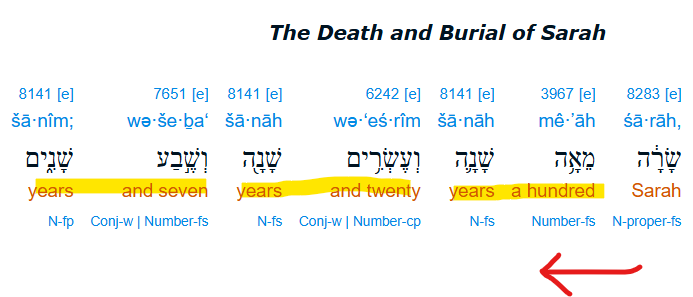So Ephron’s field, which was in Machpelah, which faced Mamre, the field and the cave which was in it, and all the trees which were in the field, that were within all the confines of its border, were deeded over.
Genesis 23:17 (NASB)
Genesis 23 goes into repetitive detail about Sarah’s burial site. Of all the things that are mentioned, it’s interesting that the Trees of Mamre are mentioned here.
They’ve been mentioned before.
Then Abram moved his tent and came and lived by the oaks of Mamre, which are in Hebron; and there he built an altar to the Lord.
Genesis 13:18 (NASB)
The first time, it’s in Genesis 13 after Abram is delivered from Egypt, and after Abram and Lot separate. God says to Abram, “for all the land which you see I will give to you and to your descendants forever.”
The trees stand to remind us of this perpetual Promise.
Then a survivor came and told Abram the Hebrew. Now he was residing by the oaks of Mamre the Amorite, brother of Eshcol and brother of Aner, and they were allies with Abram.
Genesis 14:13 (NASB)
The next time the trees show up, Abram and his friends are told about Lot having been captured by Empire.
Here, the trees stand as a reminder of God’s Promise to rescue. God is faithful.
Now the Lord appeared to Abraham by the oaks of Mamre, while he was sitting at the tent door in the heat of the day.
Genesis 18:1 (NASB)
Next, it’s when God appears to Abraham to announce that Sarah will have the Promised son, Isaac.
The trees stand to remind us of the first promise, but the promise is clarified: it’s not just for Abraham, but also for Sarah.
And finally, the trees are here in Genesis 23, where Sarah is honored and memorialized by a permanent contract, which serves as another everlasting Promise.
But a Promise about what? In this moment of Abraham’s grief over Sarah’s death, what do the trees tell us?
Perhaps they whisper in the wind, “Even in death, I am with you.”
The end is not the end. The trees that stood to remind us of the Promise made in the beginning still stand to remind us of the same Promise at the end. “When I said forever, I meant forever.”

